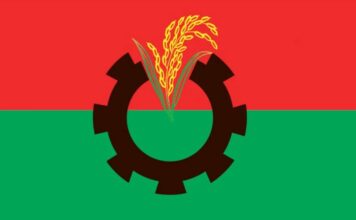
In 1971, Mir Kasem Ali, commander of Razakar during the liberation war and Jamaat leader, was executed for crimes against humanity.
At 10:35 pm on Saturday night, he was executed by hanging in the Kashimpur-2 Jail of Gazipur near Dhaka.
Law Minister Anisul Haque confirmed the execution of Mir Kasem Ali.
IG (Prisons) Brigadier General Syed Iftekhar Uddin, Additional IG (Prisons) Colonel Iqbal Hasan, Deputy Commissioner of Gazipur SM Alam, Superintendent of Police Haroon Or Rashid, Civil Surgeon Dr. Hyder Ali Khan, Senior Jail Superintendent of Kashimpur Jail-2 Prashant Kumar Vanik, District Nasir Ahmed and others. As per the rules, after the execution of the sentence, they signed certain books as witnesses.
Four executioners were in charge of the execution. They are Shah Jahan, Ripon, Din Islam and Shaheen. Two rounds of rehearsals took place after Saturday evening around the stage led by executioner Shah Jahan before the hanging.
Later, around 10:30 PM, the executioners took Mir Qasem to the stage wearing Jam hat. Before this, the doctor checked his health. Mizan and Dr. Kaucher
After hearing the news of execution, the waiting freedom fighters expressed joy at Kashimpur Karaft.
In this regard, the death sentence of six top war criminals was executed in the case of crimes against humanity. However, this is the first case of execution of a war criminal in Kashimpur Jail.
Who is Mir Qasim: Mir Qasim Ali was a member of Jamaat working council and Chairman of Digant Media Corporation. He was the 'Terror of Chittagong' in 1971. He increased his wealth with cunning. In 1980, Mir Kasem officially joined Jamaat politics. He was the founder president of Chhatra Shibir. In 1971 Mir Kasem was the president of the student union and the district commander of Al-Badr army. Later he formed 'Islami Bank Bangladesh Limited' and became its founder vice chairman. Mir Qasim Ibn Sina was one of the members of the Trust.
Death penalty for the crime: Mir Qasem, commander of Al Badr army, was sentenced to death for kidnapping and brutally torturing teenage freedom fighter Jasimuddin at Chittagong Dalim Hotel during the liberation war. The Appellate Division led by the Chief Justice rejected Mir Kasem's review application on August 30, upholding the death sentence given by the country's highest court. Later that afternoon, the judges of the bench signed the copy of the order. Later it was put on the website of the Supreme Court and copies were sent to the jail. Then on the morning of August 31, the verdict was read out to Mir Kasem in Kashimpur Jail.
He was then asked whether he wanted to seek pardon from the President. First he made the decision to return the 'missing' child. However, on September 2, Mir Kasem changed his mind and told the prison authorities that he would not seek alms. After that, the prison authorities started preparing for his execution.
Police arrested Mir Kasem from Motijheel on June 17, 2012 in a case of crimes against humanity. Since then he has been in prison. On September 5, 2013, the tribunal started trial by forming 14 charges against him. On November 2, 2014, the tribunal sentenced him to death on two charges and to various terms of imprisonment on eight charges. He was found guilty on ten of the 14 charges brought by the prosecution. He was sentenced to death on counts 11 and 12 and a total of 72 years on the remaining 8 counts.
Later, Mir Kasem appealed against that verdict on November 30, 2014.
On March 8, the Appellate Division of the Supreme Court upheld the death sentence of Chittagong's Al Badr army commander Mir Qasem. In that judgment, Mir Kasem Ali's death sentence was upheld for brutally torturing and murdering six people, including teenage freedom fighter Jasimuddin, at Dalim Hotel in Chittagong city's Andarkilla during the 1971 liberation war. Then that night, after the signature of the judicial court, the death warrant was wrapped in red cloth and sent to prison. After almost three months, the full judgment of 244 pages was published on June 6. The next day it was read to Mir Qasem. After that, Mir Kasem filed a review application seeking annulment of the judgment of the Appellate Division. After the hearing, the Appellate Division rejected it on August 30.









